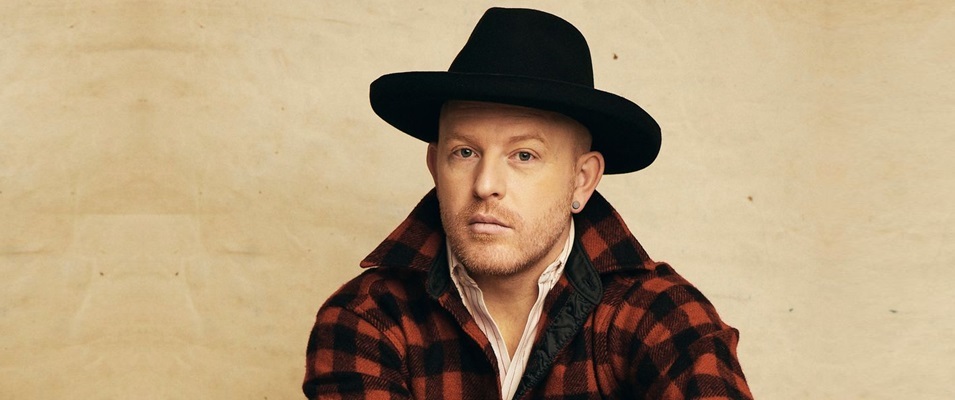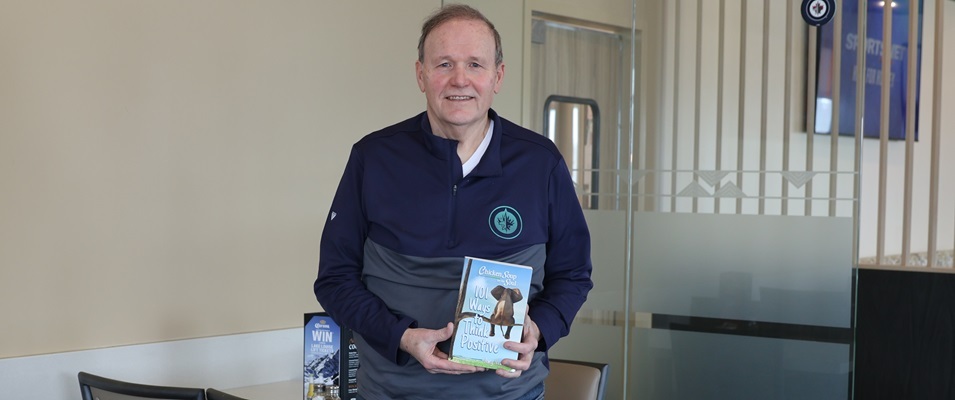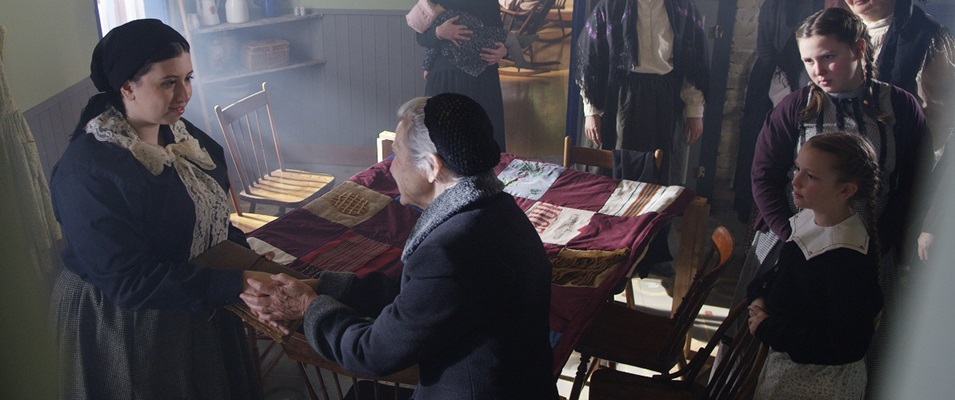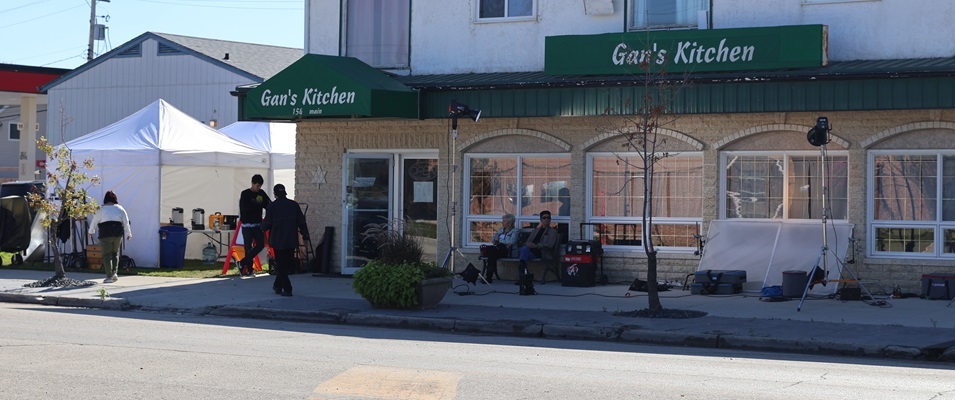
Jordan St. Cyr is a rising star in contemporary Christian music, but his small-town roots, strong faith, and loving family keep him firmly grounded.
This August, St. Cyr will perform his first hometown show since 2017. Not only is he excited to play in Niverville after being away for a couple of years, but he’s also pleased to be performing with Winnipeg legend Steve Bell, who St. Cyr calls “the quintessential artist.”
Bell and St. Cyr’s father have been longtime friends. Bell even offered advice and connections to St. Cyr early in his career.
St. Cyr says that he was tremendously honoured when Bell accepted his invitation to join him for the show.
The format for this hometown show will be a little different than his usual shows. St. Cyr will start the night with a set of his own songs. Then Bell will perform. Afterward the pair will sit together on stage and have a conversation.
“We’ll talk about life and music and the whole thing! We really want to create something a little different for the hometown crowd.”
St. Cyr believes that the power of music can spur important conversations.
“I’m not saying I have answers, but I just love being able to chat with people and let everybody know that I’m on the same journey as they are.”
Life in Niverville
When St. Cyr was six years old, his parents moved their family to Niverville. He describes a happy childhood with loving parents.
As he got a little older, though, he felt a bit of a restlessness, as small-town kids often do.
“Growing up as a young teenager, I definitely had that angst,” St. Cyr says. “You know, like, ‘I wanna leave my small town.’ And now that we have four kids and we look back, we’re like, ‘Oh, we actually had everything that we wanted.’”
For 13 years, he and his wife Heather lived with their kids in a house on Ritchot Drive.
“We lived on a block where there were like 30 kids, and we were kind of that corner house with the open door policy,” he says. “Kids were just always at our house. We had neighbours like family.”
Transition
As St. Cyr’s popularity as an artist grew, he and his wife realized they needed to be elsewhere. So they decided to leave their beloved home and create a new one in the United States.
Although they believed the decision was for the best, it wasn’t easy.
“We grieved,” says St. Cyr. “We grieved what we had been given, what we had built. We loved where we lived. I look at Niverville with so much fondness.”
In February 2022, the family of six packed up their last items and left Niverville to start a new life in Murfreesboro, Tennessee, a suburb of Nashville.
“We left Niverville at four or five in the morning, it was -40, and our driveway was lined with three- or four-foot drifts. It just felt like we were leaving the tundra for the desert!”
The St. Cyrs prayed for a way to recreate the sense of community they had enjoyed so much in Niverville. Now he feels that they’ve found just that in their new home.
Speaking with St. Cyr, there’s already the hint of a Southern drawl to his voice, but he speculates that he may have always sounded that way.
“People have always kind of said that,” he says. “I think I’m just a lazy talker. I say that with much affection, because people here in the South, they’re just a little more, you know, there’s an ease to their vocabulary.”
The climate has been one of the biggest adjustments for family. Tennessee is hot and humid. In a way, he posits that Tennessee summers are like Manitoba winters in that you just stay inside and get through it.
The food landscape has also been an adjustment for St. Cyr. Although the southern food is great, he misses everything that Winnipeg had to offer.
“The food scene in Winnipeg, I felt, was just a lot more earthy and organic,” he says. “We have an amazing food culture in Winnipeg. I think that maybe a lot of us take it for granted, but it is quite special.”
Another big adjustment has been the challenge of being a Christian in a time of so much division, especially in culture and politics.
“The overwhelming weight I feel being a believer here in the U.S. is that subconsciously you feel you’re supposed to join a side or a team,” he says. “I have a real problem with that because I don’t think it’s Gospel-centric. I don’t think it’s kingdom-minded… So often in Christian culture and church, we want to control and we want to tell people what to do. And you know what? If you’re loving, really loving, you’re going to be in the mess. You’re going to be in the mud… You’ve got to give people grace and allow them the space to live their life and choose the things that matter to them.”
Family Challenges
St. Cyr’s youngest daughter, Emery, was born with a rare neurological condition called Sturge-Weber Syndrome (SWS). Her blood vessels grow large, forming angiomas which produce a characteristic port-wine birthmark on the face. The symptoms include seizures.
The first year of Emery’s life was difficult, but the situation was looking up by the time the family moved to Tennessee. Nonetheless, one of St. Cyr’s biggest concerns about moving to the U.S. was their healthcare system.
Later that same year, while St. Cyr was on the road in Texas, he got the call from his wife that Emery was back in the hospital with seizures.
“It took me two days to get home,” he says. “That was just our introduction to the U.S healthcare system… and here we are, trial by fire. Who’s gonna be our new neurologist? Who’s our new general physician? Who are all of her people? You go through an incident like a seizure and you find your people real quick!”
That trial by fire was the last time Emery had a seizure. It’s been nearly two years and Emery is still seizure-free.
The family is cautiously optimistic about Emery’s future. For now, St. Cyr says, they are trying to live in each moment and just be so grateful for everything they have.
The Future
Without hesitation, St. Cyr says that his biggest goal for the future relates to his family. His biggest hope is to be content with what he’s been given. If the popularity of his music and message continues to grow, he’s excited.
If not, he’s okay with that, too.
“I know that there’s work that I’m supposed to do right in the here and now. I think, to be honest, that it’s just using music as a vehicle to spark and inspire conversation that drives people to think on the deeper things.”


















